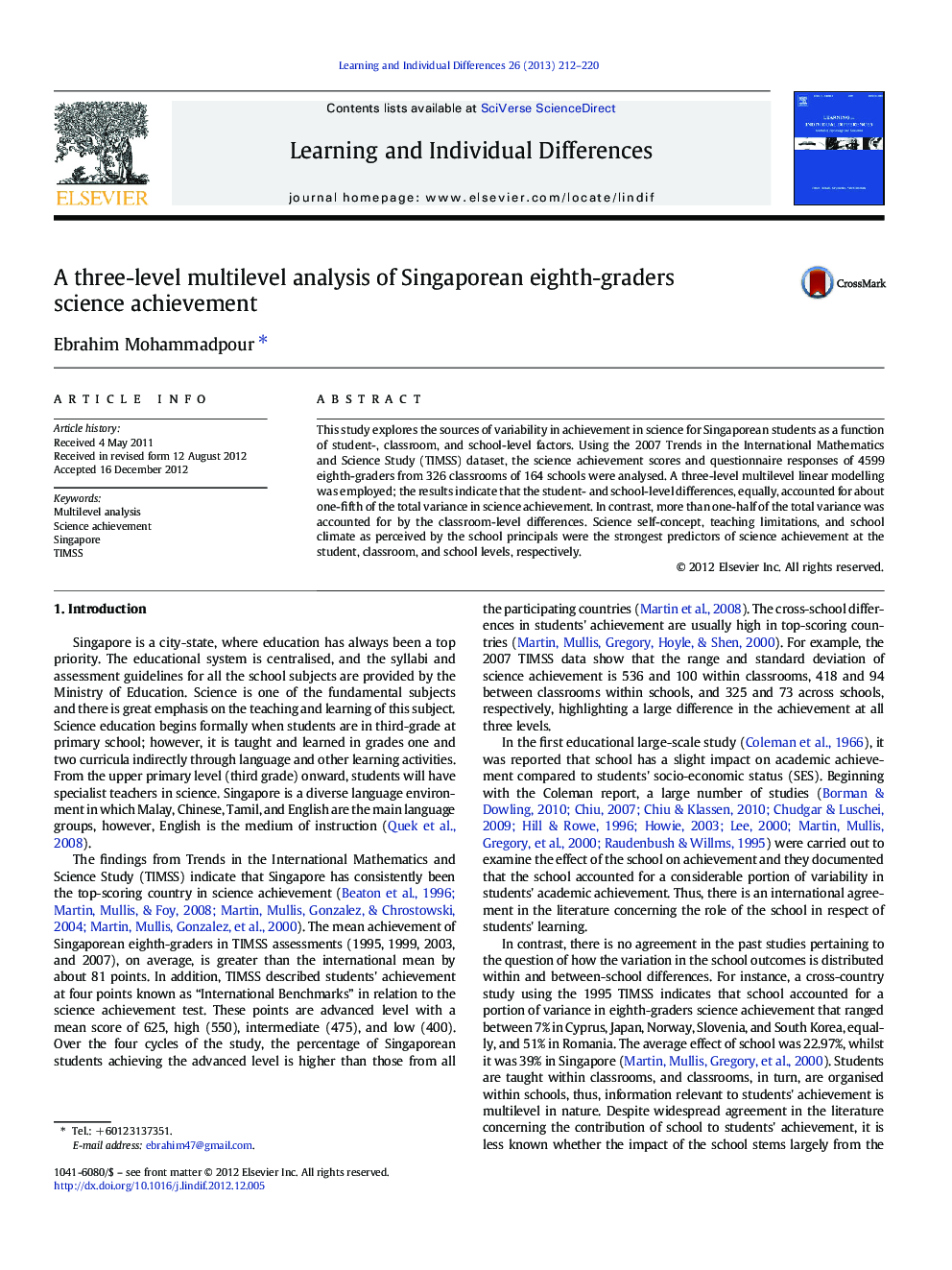| Article ID | Journal | Published Year | Pages | File Type |
|---|---|---|---|---|
| 364845 | Learning and Individual Differences | 2013 | 9 Pages |
This study explores the sources of variability in achievement in science for Singaporean students as a function of student-, classroom, and school-level factors. Using the 2007 Trends in the International Mathematics and Science Study (TIMSS) dataset, the science achievement scores and questionnaire responses of 4599 eighth-graders from 326 classrooms of 164 schools were analysed. A three-level multilevel linear modelling was employed; the results indicate that the student- and school-level differences, equally, accounted for about one-fifth of the total variance in science achievement. In contrast, more than one-half of the total variance was accounted for by the classroom-level differences. Science self-concept, teaching limitations, and school climate as perceived by the school principals were the strongest predictors of science achievement at the student, classroom, and school levels, respectively.
► Science achievement in Singaporean students is driven largely by classroom-level differences. ► The contribution of the student- and school-level factors to achievement is alike. ► Self-concept, teaching limitation and school climate are the strongest predictors of science achievement.
